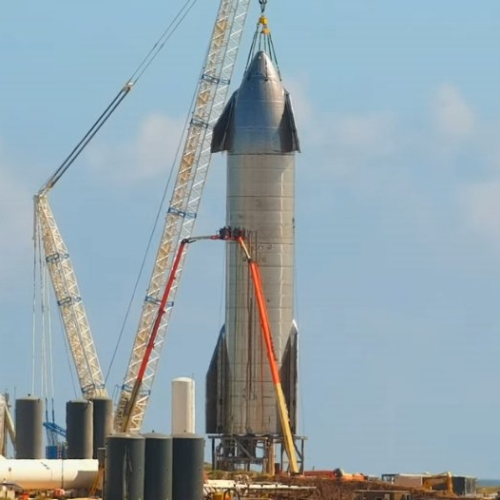ESA maps out first launch schedule for new rockets
Capitalism in space? The European Space Agency (ESA) today laid out the development roadmap that will lead to the launch of two new rockets, the Vega-C being built by the Italian company Avio, and the Ariane 6 being built by ArianeGroup.
The Vega-C is a more powerful version of the Vega rocket, aimed at capturing the smaller satellite market. It maiden flight is now scheduled for June ’21.
The Ariane 6 is aimed at replacing the Ariane 5, Europe’s big workhorse rocket, but to do so at a lower cost. Its maiden flight is now set for the second quarter of ’22, a significant delay from the previously announced target date in ’21, which itself was a delay from the original late ’20 launch date.
Ariane 6 however has not succeeded in cutting costs enough to match its competitor SpaceX, and thus it continues to have trouble attracting customers, even among ESA’s partner nations that it is meant to serve. These issues have led to rumors that ESA is already looking to either significantly upgrade Ariane 6 (before it even flies), or replace it entirely wit a new re usable rocket.
Capitalism in space? The European Space Agency (ESA) today laid out the development roadmap that will lead to the launch of two new rockets, the Vega-C being built by the Italian company Avio, and the Ariane 6 being built by ArianeGroup.
The Vega-C is a more powerful version of the Vega rocket, aimed at capturing the smaller satellite market. It maiden flight is now scheduled for June ’21.
The Ariane 6 is aimed at replacing the Ariane 5, Europe’s big workhorse rocket, but to do so at a lower cost. Its maiden flight is now set for the second quarter of ’22, a significant delay from the previously announced target date in ’21, which itself was a delay from the original late ’20 launch date.
Ariane 6 however has not succeeded in cutting costs enough to match its competitor SpaceX, and thus it continues to have trouble attracting customers, even among ESA’s partner nations that it is meant to serve. These issues have led to rumors that ESA is already looking to either significantly upgrade Ariane 6 (before it even flies), or replace it entirely wit a new re usable rocket.

